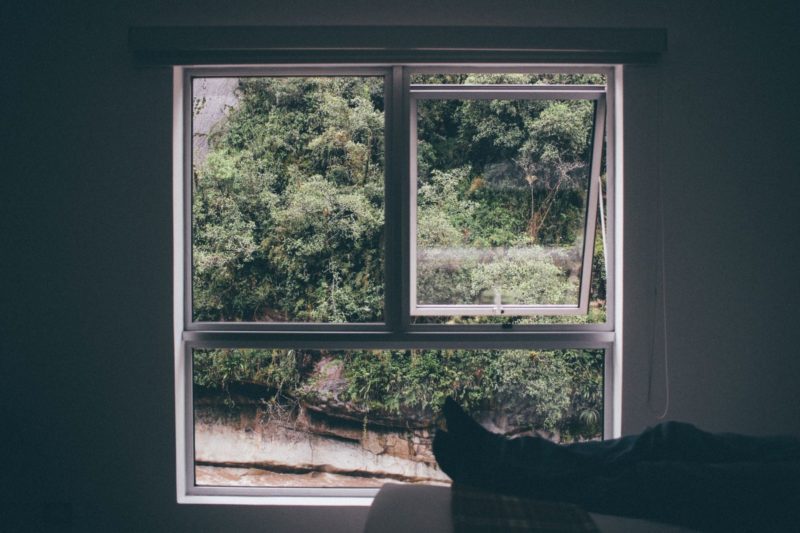Are you wondering about coughing when heater is on? Stop wondering, and start reading this article to find the best answer. Whenever individuals inhale heated air, they start coughing. It might be caused by discomfort from the environment and allergies.
Since dirt or other pollutants accumulated during the summertime are pushed into the air when you just switch on the heater in the winter, this sort of cough will be much more evident.
Whenever the heater is turned on, it not only circulates hot air throughout the home but also starts spouting out all of the dirt, mildew, or bug bits that have accumulated in the heating vents. That condition, if left unchecked, could result in a whole winter of aches, coughing, and sneezing. This is just an overview; keep reading to discover more.
Tips To Reduce Coughing When Your Heater Is On
Bad indoor air quality is the primary cause of coughing or dry lungs. These two most important parameters are temperature & humidity. Keeping a suitable temperature and relative humidity balance is essential for the body’s natural protection and can cause various respiratory illnesses. The mentioned below are some tips to get rid of such problems and also you will understand about coughing when heater is on.
#1. Make your house ducts cleaned
Keep your ducting cleaned out when it becomes too chilly, and you will have to switch on the heater. It guarantees that you’ll get fresh, hot air streaming through the vents when you turn on the heater for the winter. Coughing, allergies, or aches are just a few issues that may be alleviated by cleaning the ducts.
#2. Make better hot air circulation
Users may be tempted to heat only some house areas to save money, but this can be unsafe. Moving from a chilly place to a heated environment and returning might be dangerous if you have poor circulation or frequently experience freezing feet and hands. When you go from a hot to a cold room, the blood pressure increases, and the heart’s blood flow is reduced. This may result in a cardiac arrest, angina, or perhaps an irregular heartbeat. Prevent the hazards to the health by heating the entire home.
#3. Arrange humidifier
Users might have overly dry air if they have skin problems, a dry mouth, or sore sinuses. Bring in a humidifier to enhance the moisture from the air and make breathing more pleasant. Installing a humidifier provides additional advantages. You don’t have to put the heating up with a humidifier, which saves you money on the electricity prices.
#4. Windows must be open
Whether you’re unwell, open windows to obtain some clean air before turning on the heat; a heater professional must also inspect your home to ensure you will not become ill from CO or Co2 poisoning. Install a carbon monoxide detector to verify that large quantities of this hazardous gas are not present. If you’re unsure, get the heating system inspected by a professional.
#5. Keep heating system upgraded
Vintage heating systems might have issues like broken heaters, which could aggravate the illness and put you at risk of co poisoning. In addition, gas heaters emit no2, which can trigger asthma symptoms in youngsters. When you feel that the present central heating system is having troubles, it may well be best to call a professional to get it improved or rebuilt.
#6. Always use a quality air filter
Rather than using disposable heater filtration, choose a durable filtration system to ensure fresh air whenever the heater is turned on. Filters filter out about 99% of the pollutants in the air.
Bad Central Heating System Impacts On Your Health
People don’t conceive of central heating as a source of illness; the issue is difficult to detect. Even during spring and early summer, dirt, dust, and other irritants accumulate in the ducts. They pour into the house and lungs whenever you start on the heating system in the wintertime. If you’ve not replaced the air purifiers in a while, you can be inhaling mold and dirt that has gathered over time. And then there is the general unease that comes with moving among areas that aren’t evenly controlled. Here seem to be eight ways that central heating might make you sick.
Due to airborne particles, you may experience sneezing & sinus discomfort. The dry tongue or nasal cavity can cause breathing problems. Allergens, including dirt and dust, maybe carried inside your home, causing the allergens to flare up. You may have headaches or sinus pains due to congested nostrils and odors from mold, fungi, or debris.
Carbon monoxide poisoning from defective heaters can cause a headache as well. Excessively dirt and dry air might cause dry, teary eyes. Infections & dry air might cause the throat to feel irritated. The central heating may make you feel overly dry. As an outcome, people may get dehydrated. Temperature changes from one area to another may make you feel uneasy in the home. I guess it’s helpful to read about if you notice this when your heat turns on.
It’s A Wrap!
We are delighted to know that you have learned about coughing when heater is on. It mostly happens when there is no humidity in your room air, so you can avoid such problems by following the safety mentioned above tips. Click on these links to read related articles; know what is the best type of heater for a room and what kind of heater do i have. Thank you, friends, for staying with us.

